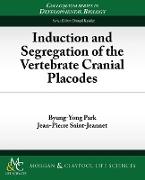- Start
- Induction and Segregation of the Vertebrate Cranial Placodes
Induction and Segregation of the Vertebrate Cranial Placodes
Angebote / Angebote:
During evolution the vertebrate head has acquired a number of unique features including specialized paired sense organs and cranial sensory ganglia. These evolutionary novelties arise from discrete thickenings of the head ectoderm known as cranial placodes. They include the adenohypophyseal, olfactory, lens, trigeminal, profundal, otic, epibranchial and lateral line placodes. While distinct in the derivatives and cell types they will form, all cranial placodes originate from a common preplacodal domain surrounding the anterior neural plate. Recent evidence suggests that the induction of this pre-placodal domain and its subsequent subdivision into individual placodes with specific identities is a multi-step process. Here we describe the development of these placodes and their derivatives and summarize recent advances in the characterization of the repertoire of transcription factors underlying their development. We also review recent studies that have started to address the role of several classes of signaling molecules in placode induction and segregation, including Bone Morphogenetic Proteins, Fibroblast Growth Factors and Wnt molecules.
Table of Contents: Introduction / Cranial Placodes and Their Derivatives / Molecular Identity of Cranial Placodes / Induction and Segregation of the Cranial Placodes / Conclusion / Acknowledgments / References / Author Biographies
Folgt in ca. 10 Arbeitstagen




